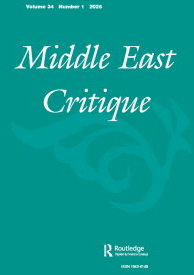Focusing on a story of collaboration and division among writers in a Cairo literary club after 2013, this article examines revolutionary endings through the lens of urban literary networks. Drawing on ethnographic research conducted in Cairo’s literary clubs from 2016 to 2023, this study draws attention to the ritual of takrīm, or honoring, and its capacity to shield the club from the dominant anti-Muslim Brotherhood discourse that intensified after the organization’s repression in 2013. Through an examination of takrīm as a form of staging and using Andrew Shryock’s framework of guests and hosts, this study proposes viewing literary clubs as spaces set apart from post-revolutionary ‘normality’. However, the consensus around the ritual of honoring is fragile, as the enduring effects of the revolution – such as partisan allegiances, traumatic memories, and lingering suspicions – threaten to resurface.



